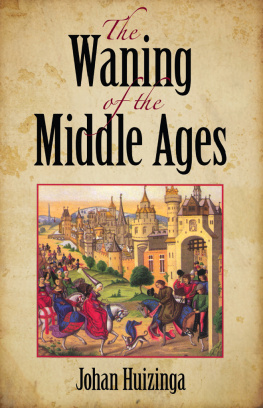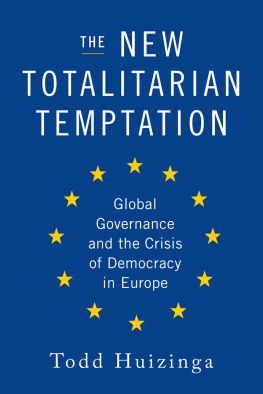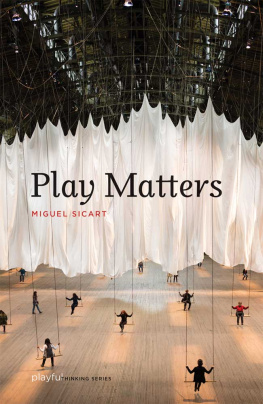The International Library of Sociology
HOMO LUDENS
Founded by KARL MANNHEIM
The International Library of Sociology
THE SOCIOLOGY OF CULTURE
In 9 Volumes
| I | The Cultural Background of Personality | Linton |
| (The above title is not available through Routledge in North America) |
| II | Dan in Society | Rust |
| III | Homo Ludens | Huizinga |
| IV | Samples from English Cultures (Part One) | Klein |
| V | Samples from English Cultures (Part Two) | Klein |
| VI | Societies in the Making | Jennings |
| VII | The Sociology of Literary Taste | Schucking |
| (This title is not available through Routledge in North America) |
| VIII | The Sociology of Music | Silbermann |
| IX | Towards a Sociology of the Cinema | Jarvie |
| (This title is not available through Routledge in North America) |
HOMO LUDENS
A Study of the Play-Element in Culture
by
J. HUIZINGA
First published in English in 1949 by
Routledge
Reprinted 1998 (twice), 1999, 2000, 2001 (twice), 2002
by Routledge
2 Park Square, Milton Park, Abingdon, Oxon, OX14 4RN
Transferred to Digital Printing 2009
Routledge is an imprint of the Taylor & Francis Group
1949 J. Huizinga
All rights reserved. No part of this book may be reprinted or reproduced or utilised in any form or by any electronic, mechanical, or other means, now known or hereafter invented, including photocopying and recording, or in any information storage or retrieval system, without permission in writing from the publishers.
The publishers have made every effort to contact authors/copyright holders of the works reprinted in The International Library of Sociology. This has not been possible in every case, however, and we would welcome correspondence from those individuals/companies we have been unable to trace.
British Library Cataloguing in Publication Data
A CIP catalogue record for this book
is available from the British Library
ISBN 10: 0-15-17594-1 (hbk)
ISBN 10: 0-15-48755-2 (pbk)
ISBN 13: 978-0-415-17594-4 (hbk)
ISBN 13: 978-0-415-48755-9 (pbk)
Homo Ludens
ISBN 0-415-17594-1
The Sociology of Culture: 9 Volumes
ISBN 0-415-17824-X
The International Library of Sociology: 274 Volumes
ISBN 0-415-17838-X
Publisher's Note
The publisher has gone to great lengths to ensure the quality of this reprint but points out that some imperfections in the original may be apparent.
TABLE OF CONTENTS
THIS edition is prepared from the German edition published in Switzerland, 1944, and also from the author's own English translation of the text, which he made shortly before his death. Comparison of the two texts shows a number of discrepancies and a marked difference in style; the translator hopes that the following version has achieved a reasonable synthesis.
A HAPPIER age than ours once made bold to call our species by the name of Homo Sapiens. In the course of time we have come to realize that we are not so reasonable after all as the Eighteenth Century, with its worship of reason and its naive optimism, thought us; hence modern fashion inclines to designate our species as Homo Faber: Man the Maker. But though faber may not be quite so dubious as sapiens it is, as a name specific of the human being, even less appropriate, seeing that many animals too are makers. There is a third function, however, applicable to both human and animal life, and just as important as reasoning and makingnamely, playing. It seems to me that next to Homo Faber, and perhaps on the same level as Homo Sapiens, Homo Ludens, Man the Player, deserves a place in our nomenclature.
It is ancient wisdom, but it is also a little cheap, to call all human activity play. Those who are willing to content themselves with a metaphysical conclusion of this kind should not read this book. Nevertheless, we find no reason to abandon the notion of play as a distinct and highly important factor in the world's life and doings. For many years the conviction has grown upon me that civilization arises and unfolds in and as play. Traces of such an opinion are to be found in my writings ever since 1903. I took it as the theme for my annual address as Rector of Leyden University in 1933, and afterwards for lectures in Zrich, Vienna and London, in the last instance under the title: The Play Element of Culture. Each time my hosts wanted to correct it to in Culture, and each time I protested and clung to the genitive,interpretations of play however important these may be, and that I have employed anthropological terms and explanations but sparingly, even where I have had to quote ethnological facts. He will find no mention of mana and the like, and hardly any of magic. Were I compelled to put my argument tersely in the form of theses, one of them would be that anthropology and its sister sciences have so far laid too little stress on the concept of play and on the supreme importance to civilization of the play-factor.
The reader of these pages should not look for detailed documentation of every word. In treating of the general problems of culture one is constantly obliged to undertake predatory incursions into provinces not sufficiently explored by the raider himself. To fill in all the gaps in my knowledge beforehand was out of the question for me. I had to write now, or not at all. And I wanted to write.
Leyden,
June 1938.
Logically, of course, Huizinga is correct; but as English prepositions are not governed by logic I have retained the more euphonious ablative in this sub-title.Trans.
PLAY is older than culture, for culture, however inadequately defined, always presupposes human society, and animals have not waited for man to teach them their playing. We can safely assert, even, that human civilization has added no essential feature to the general idea of play. Animals play just like men. We have only to watch young dogs to see that all the essentials of human play are present in their merry gambols. They invite one another to play by a certain ceremoniousness of attitude and gesture. They keep to the rule that you shall not bite, or not bite hard, your brother's ear. They pretend to get terribly angry. Andwhat is most importantin all these doings they plainly experience tremendous fun and enjoyment. Such rompings of young dogs are only one of the simpler forms of animal play. There are other, much more highly developed forms: regular contests and beautiful performances before an admiring public.
Here we have at once a very important point: even in its simplest forms on the animal level, play is more than a mere physiological phenomenon or a psychological reflex. It goes beyond the confines of purely physical or purely biological activity. It is a significant functionthat is to say, there is some sense to it. In play there is something at play which transcends the immediate needs of life and imparts meaning to the action. All play means something. If we call the active principle that makes up the essence of play, instinct, we explain nothing; if we call it mind or will we say too much. However we may regard it, the very fact that play has a meaning implies a non-materialistic quality in the nature of the thing itself.











